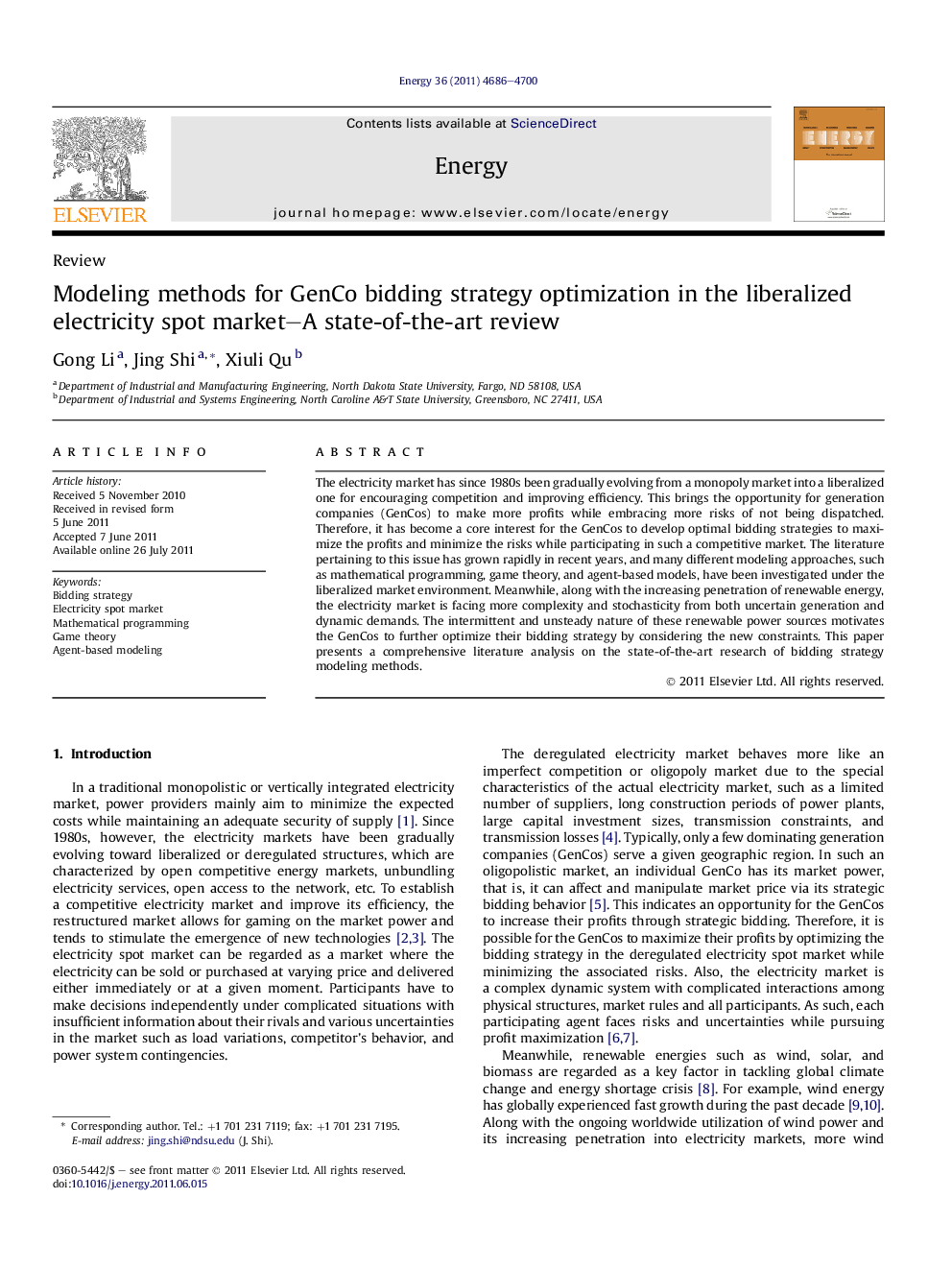| Article ID | Journal | Published Year | Pages | File Type |
|---|---|---|---|---|
| 1734236 | Energy | 2011 | 15 Pages |
The electricity market has since 1980s been gradually evolving from a monopoly market into a liberalized one for encouraging competition and improving efficiency. This brings the opportunity for generation companies (GenCos) to make more profits while embracing more risks of not being dispatched. Therefore, it has become a core interest for the GenCos to develop optimal bidding strategies to maximize the profits and minimize the risks while participating in such a competitive market. The literature pertaining to this issue has grown rapidly in recent years, and many different modeling approaches, such as mathematical programming, game theory, and agent-based models, have been investigated under the liberalized market environment. Meanwhile, along with the increasing penetration of renewable energy, the electricity market is facing more complexity and stochasticity from both uncertain generation and dynamic demands. The intermittent and unsteady nature of these renewable power sources motivates the GenCos to further optimize their bidding strategy by considering the new constraints. This paper presents a comprehensive literature analysis on the state-of-the-art research of bidding strategy modeling methods.
► Publications on bidding in electricity spot markets are comprehensively reviewed. ► Insights on the evolution of solution methodologies of recent 10 years are provided. ► The pros and cons of these solution approaches are also discussed. ► Future research directions, with renewable energy participations, are pointed out.
